|
|
|
Benjamin Howard Baker. Although sometimes called in the press either Howard Baker or Howard-Baker he personally preferred to be known as B Howard Baker. |
| Born in 1892, the son of a local soap and chemical manufacturer, he lived at number 48 Marlborough Road Liverpool as a boy, just down the road from Marlborough College which he attended until he was 18 in 1910. He was captain of the school soccer team, played cricket and competed in high jump at school events. During the 1910 school sports day he was spotted by Tommy Blair, President of the Liverpool Harriers, who recognised his natural high jump potential and signed him up for the club. Amazingly later the same year he became the English Amateur Association high jump champion, repeating his victory in 1912 and 1913, he also competed in the 1912 and 1920 Olympic Games. |
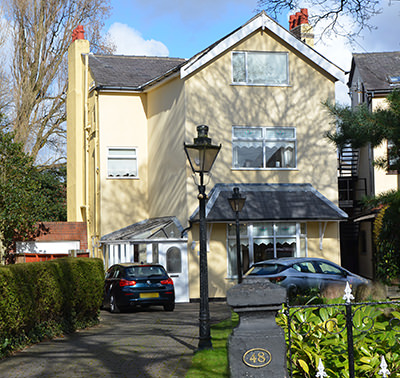 48 Marlborough Road |
|
|
Along the way he was a
member of the 1914 Marlborough Old Boys team
which won the Liverpool I Zingari Challenge Cup.
Although not winning any medals at the Olympics,
shortly after the 1920 Games in
Antwerp
he beat the
Olympic champion Dick Landon from the
USA in a British Empire v USA match. Baker is
acknowledged as the greatest British high jumper
of the pre-World War II era, he improved the UK
record three times and his 1921 record of
6ft-5inches (1.95meters) stood for 26 years. He
also threw discus, javelin and hammer, was a
title winning tennis player, water polo
goalkeeper, and played cricket for Liverpool CC
and Lancashire.
In November 1917 he married
Christina
Fraser,
both age 25, and together they had two sons.
In 1921 he withdrew from athletics to
concentrated on soccer, probably as a result of
an injury to his ankle received while serving as
a Lieutenant in the Royal Navy on mine sweepers
in the first world war, which probably also
explains his move into goal from his previous
position as centre-half. |
||
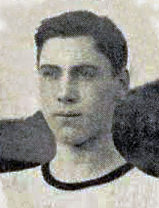 1912 |
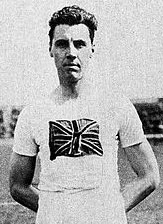 1920 |
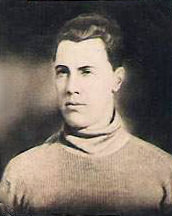 1926 |
||||||||||||||||||
|
Baker’s career as a player with first
rank amateur, professional and English national
soccer teams stretched over 20 years throughout
which he remained strictly an amateur, a
position no doubt made easier as he worked for
his father’s firm and presumably received his
financial support.
A summary of his soccer clubs.
He played twelve times for England in
international matches, ten for the amateur team
and twice for the full national team, 1921
against Belgium and 1925 against Northern
Ireland. In all his appearances as England
keeper he was only once on the losing side.
Between 1919 and 1929 England played 49 full
international matches and only three of the 23
different goalkeepers selected were amateurs,
Baker twice the others once each. He also played
in the 1925 FA Charity Shield match.
Although signed to Liverpool in 1919-20
he did not make a first team appearance mainly
because the team already had Elisha Scott widely
regarded as the best keeper in the clubs
history. He later played 11 times for the
Everton first team but was best known to the
public for his 302 appearances for Chelsea and
Corinthian. The Corinthians were founded in September 1882 and quickly became recognised as a prime example of sportsmanship while provided entertaining and open play. Their attitude towards sportsmanship is illustrated by a comment made by C.B.Fry, a famous Corinthian, when the penalties rule was first introduced in 1891, he said it was “a standing insult to sportsmen to have to play under a rule which assumes that players intend to trip, hack and push opponents and to behave like cads of the first kidney”. For some years after if a penalty was awarded against the Corinthians their keeper would simply lean against a goalpost when the kick was taken and if they were awarded one their captain would deliberately miss. In later years they took a more practical approach.
The Corinthians often toured abroad and
are credited with having popularised football
around the world while championed the ideals of
amateurism. Spanish side
Real Madrid
adopted the Corinthian’s white kit and following
a Corinthians tour of South America a group of
Brazilian Sao Paulo railway workers were
inspired to found what became one of Brazil's
largest and most successful teams
Sport
Club Corinthians Paulistan,
winners of the FIFA Club World Cup in 2000 and
2012. |
||||||||||||||||||||
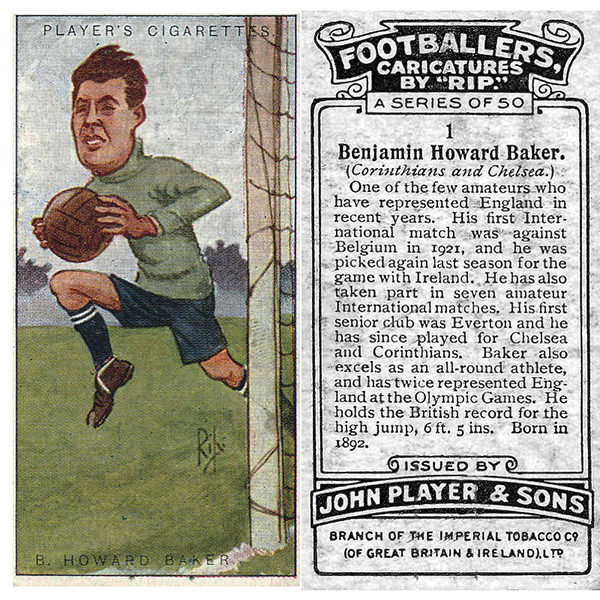 |
In 1921 Baker signed for Chelsea, playing 92 times for them often before 60,000+ at Stamford Bridge. He was a great favourite with the fans who much admired his acrobatic ability in goal. He was known and liked however well beyond Chelsea, The Times often reporting on his goalkeeping antics.
The Players cigarette
|
|||||||||||||||||||
|
Keepers could have a rough time of it in the 1920 as rules protecting then had not yet been introduced, but Baker at six foot three and thirteen stone, who kept up his athletic training including running on the Liverpool streets and swimming in the Mersey, to say nothing of sparing with heavyweight professional boxers, would not have been intimidated by any opposing forward. The Chelsea fans loved to see him take a goal kick, he regularly put the ball well into the opposition half, frequently reaching their goal line. On one occasion he was called to take a penalty, much to the fans surprise and pleasure when he scored. He is still the only Chelsea goalkeeper to have scored a goal for the team in a league match. In 1926 he was back at Everton but at the end of the season he withdrew from League football leaving only one unpaid amateur player in the first division. It has been suggested the main reason he withdrew was that he thought it unfair for him to occupy a place which could be filled by a professional career player. |
|||
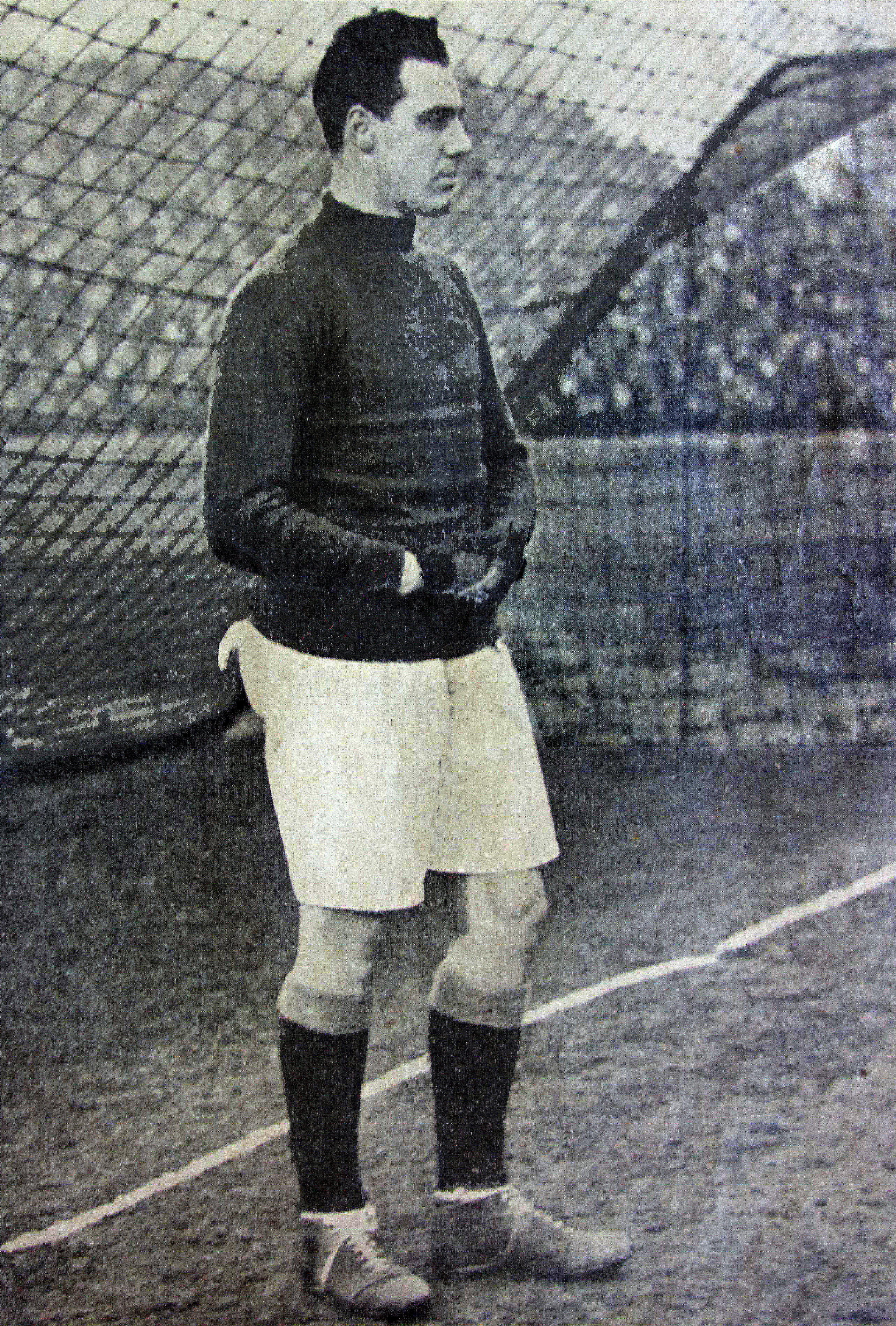 |
|
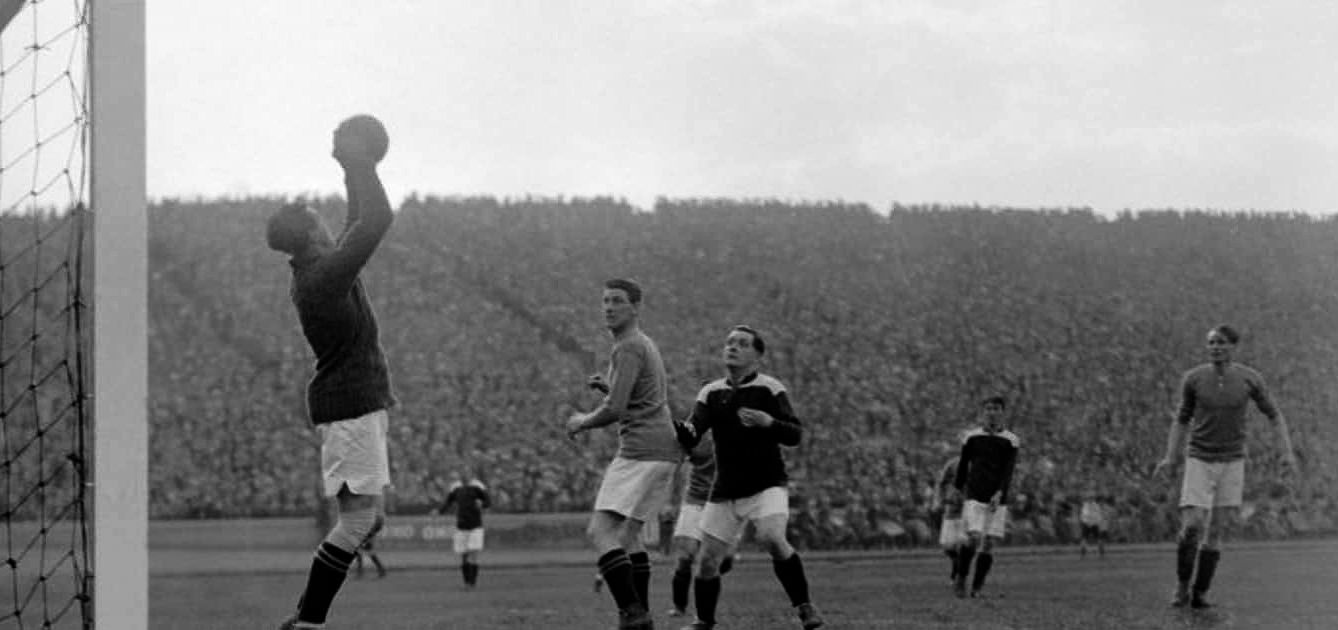 B Howard Baker in goal for Chelsea at Stamford Bridge |
|
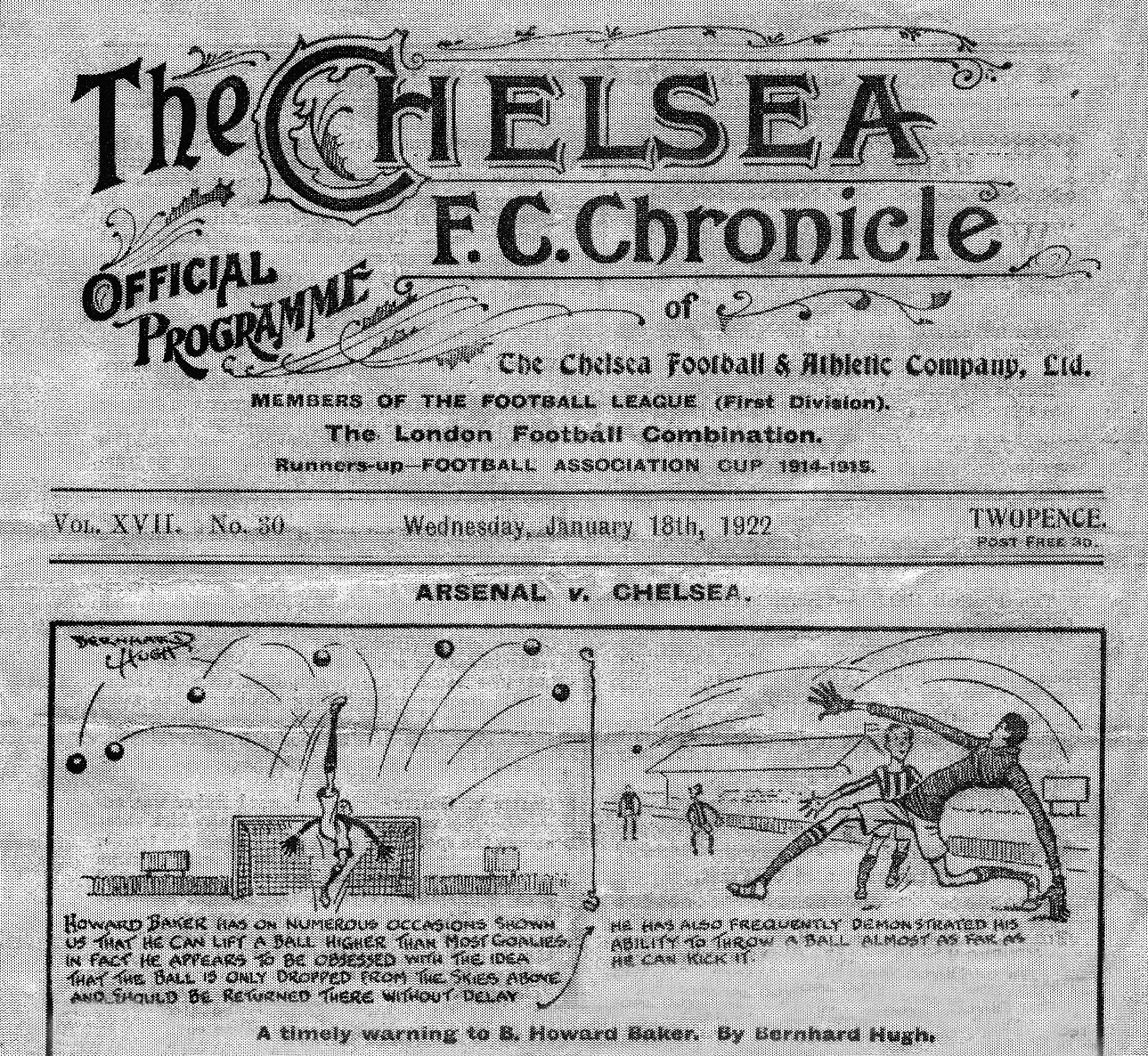 |
|||
|
He continued making regular appearances for the Corinthians until 1933 when he finally retired from soccer at the age of 41, although the report in The Times said “he still showed to be in his best form”. When he retired he had achieved the highest number of appearances for the club of any Corinthian player. Although taking
a more prominent role in running the family
soap and chemical
firm and other business interests he did not
give up competitive sport, tennis being his new
interest,
not
surprisingly with some success in national
competitions. He represented Lancashire on the
committee of The Lawn Tennis Association and as
an active member of the British Olympic
Association helped organise the 1948 London
games. At the start of World War Two he gave a personal donation of £25,000 (well over one million pounds today) to the ‘Build a Battleship’ fund. The Admiral organising the fund having himself been a noted footballer Baker sent a letter with his cheque saying ‘from one goalkeeper to another’. Benjamin Howard Baker died on the 10th of September 1987 at the age of 95.
|
|||